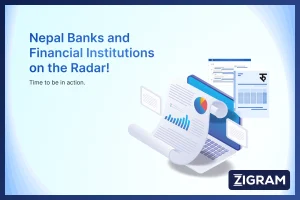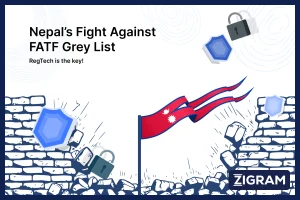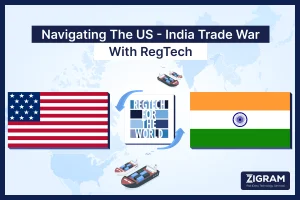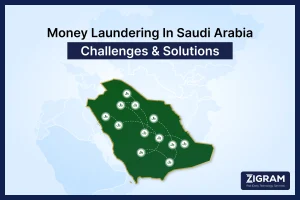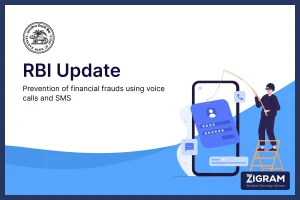The rise of virtual assets, exemplified by cryptocurrencies like Bitcoin and Ethereum, has marked a transformative era in global finance. However, this surge in popularity brings forth a pressing concern: the potential exploitation of these assets for illicit activities such as money laundering and terrorist financing. Addressing this challenge head-on, the Financial Action Task Force (FATF), a leading international organization dedicated to combating financial crimes, has spearheaded efforts to develop comprehensive measures to mitigate these risks.

Defined by the FATF, virtual assets represent digital forms of value capable of being traded or transferred digitally for payment or investment purposes. Notably, these assets exclude digital representations of fiat currencies, securities, or other financial instruments already covered by existing FATF Recommendations. While cryptocurrencies like Bitcoin, Ether, Solana, Tether, and Litecoin are among the most recognizable examples of virtual assets, other forms such as gaming tokens, NFTs, and governance tokens may also be considered under specific circumstances, subject to compliance with the FATF’s stringent regulations.
Parallel to the emergence of virtual assets is the prominence of Virtual Asset Service Providers (VASPs), entities facilitating various activities related to virtual assets on behalf of others. These activities include exchanging virtual assets and fiat currencies, transferring virtual assets, and administering their safekeeping. Custodians, mining pools, wallet providers, and decentralized exchanges are just a few examples of VASPs shaping the landscape of virtual asset transactions.
Against this backdrop, the FATF’s recent initiative, the VACG Table, stands as a pivotal development in ensuring the responsible use of virtual assets. Published on March 28, 2024, this table provides a comprehensive overview of the implementation status of FATF standards on virtual assets and VASPs across its member jurisdictions and additional jurisdictions with significant VASP activity. By shedding light on implementation efforts and supporting jurisdictions in regulating and supervising VASPs for Anti-Money Laundering/Counter-Terrorist Financing (AML/CFT) purposes, the VACG Table aims to catalyze timely and effective compliance with FATF recommendations.
In this article, we delve into the purpose of this report, examine its findings, and assess its implications for countries and VASPs alike.
What is the FATF and Why Does it Care About Virtual Assets?
The FATF is an intergovernmental body that sets global standards for combating ML and TF. Established in 1989, it works with governments and the private sector to develop and promote effective policies. Virtual assets pose unique challenges for AML/CFT because they can be easily transferred across borders and may operate outside traditional financial systems. Criminals could potentially use virtual assets to launder money or finance terrorist activities. The FATF recognized these risks and published its first guidance on virtual assets in 2015. They have since updated these recommendations, most recently in November 2023, to ensure they remain effective in the evolving virtual asset landscape.
What is the VACG Table?
The VACG Table is a new initiative launched by the FATF in March 2024. It focuses on jurisdictions with a significant virtual asset industry. These jurisdictions are identified based on two criteria:
Trading volume:
This refers to the total amount of virtual assets being bought and sold within a jurisdiction.
Userbase:
This refers to the number of people using virtual assets within a jurisdiction.
The Table includes all FATF member countries (currently 39) along with an additional 20 jurisdictions identified as having materially important virtual asset activity.
What Information Does the Table Provide?
The Table focuses solely on Recommendation 15 of the FATF Recommendations, which pertains to virtual assets and virtual asset service providers (VASPs). VASPs encompass businesses offering services related to virtual assets, such as exchanges and wallet providers. It assesses whether a jurisdiction has implemented key requirements of Recommendation 15, including conducting a risk assessment of money laundering and terrorist financing (ML/TF) risks associated with virtual assets, licensing or registering VASPs, and supervising VASPs to ensure compliance with anti-money laundering and counter-terrorist financing (AML/CFT) regulations. Each jurisdiction self-reports their progress on these aspects, reflected in three possible responses: “Yes” indicating implementation, “No” indicating non-implementation, and “In Progress” indicating ongoing efforts toward implementation. However, it’s crucial to note that the Table does not evaluate a jurisdiction’s overall AML/CFT effectiveness beyond Recommendation 15.
Why is the Table Important?
The Table serves as a valuable tool for various reasons. Firstly, it offers transparency by providing insights into how jurisdictions are addressing money laundering and terrorist financing risks associated with virtual assets. Secondly, it facilitates benchmarking, enabling jurisdictions to compare their progress with others and pinpoint areas for enhancement. Lastly, it fosters accountability by holding jurisdictions responsible for implementing the FATF Recommendations, thereby promoting greater adherence to international standards and regulations. However, it’s important to understand the limitations of the Table. The information relies on self-reported data from jurisdictions, which may not always be fully accurate. Additionally, the Table only focuses on Recommendation 15 and does not provide a comprehensive picture of a jurisdiction’s overall AML/CFT framework.
Key Insights from FATF’s Global Evaluation of Virtual Asset Regulation
1. Impressive Progress on Travel Rule Legislation:
Nearly 89% of jurisdictions with materially significant Virtual Asset Service Provider (VASP) activity have either enacted or are in the process of enacting Travel Rule legislation. Notably, Australia, Iceland, Russia, South Africa, Ukraine, and Vietnam are yet to initiate this process.
2. High Implementation of Regulatory Measures:
Over 90% of jurisdictions with materially significant VASP activity have implemented crucial measures to regulate and supervise Virtual Assets (VAs) and VASPs. Here's the breakdown of statistics:
- 100% (58) have either conducted or are in the process of conducting a risk assessment covering virtual assets and VASPs activity (in progress: Australia, Finland, Greece, Malaysia, Portugal).
- 9% (5) have or are in the process of explicitly prohibiting virtual assets and VASP activity (China, Egypt, Saudi Arabia, and in progress: Seychelles, Indonesia).
- 17% (10) have not yet established a regulatory framework to require VASPs to register or license and apply AML/CFT measures (Vietnam, New Zealand; in progress: Türkiye, Argentina, Colombia; alongside the five above jurisdictions which have or are in the process of explicitly prohibiting virtual assets and VASP activity).
- 22% (13) have not yet registered or licensed a VASP in practice (Argentina, Belgium, Brazil, Colombia, New Zealand, Türkiye, Ukraine, Vietnam, China, Egypt, Saudi Arabia, Seychelles; in progress: Nigeria).
- 15 % (9) have not yet conducted a supervisory inspection or included VASPs in their current inspection plan (Argentina, Colombia, China, Egypt, Saudi Arabia, Ukraine, Vietnam; in progress: the Netherlands, the Virgin Islands (British)).
- 28% (16) have not yet taken enforcement action or other supervisory action against VASPs (Argentina, Brazil, China, Finland, Iceland, Ireland, Russian Federation, Saudi Arabia, South Africa, Spain, Ukraine, Vietnam; in progress: Canada, Indonesia, Virgin Islands (British)).
3. India's Compliance:
India has conducted a risk assessment on virtual assets and VASPs. It has explicitly prohibited their use but is compliant with legislation/regulation requiring VASPs to be registered or licensed. India has also included VASPs in its supervisory inspection plan and has taken enforcement actions against them.
4. Global Snapshot:
China, Egypt, and Saudi Arabia have explicitly prohibited the use of virtual assets and VASPs, while Seychelles and Indonesia are in progress regarding the prohibition. This snapshot includes FATF members and 20 jurisdictions with materially significant VASP activity.
Implications of FATF's R.15 Implementation Table for the Cryptocurrency Sector, Companies and Countries
The publication of the FATF's table holds significant implications for the cryptocurrency sector, offering policymakers and businesses swift insights into the status of Recommendation 15 (R.15) implementation across 58 jurisdictions. It serves as a preliminary benchmarking tool, highlighting the effectiveness of individual regulatory frameworks and underscoring the need for further efforts to fully implement R.15, particularly emphasizing the establishment of a uniform global standard in Anti-Money Laundering/Counter-Terrorist Financing (AML/CFT) obligations. For countries, the table encourages prioritization of FATF standards based on their unique risk profiles, urging the incorporation of quantitative and qualitative information into National Risk Assessments. It also incentivizes additional resource allocation for national implementation efforts against money laundering and terrorist financing, delineating components of effective implementation. Failure to implement effective measures may lead to higher-risk perceptions for nationally established Virtual Asset Service Providers (VASPs), disadvantaging a jurisdiction's virtual asset sector globally and impacting compliance assessments with FATF Recommendations. For companies in the cryptocurrency sector, the table offers valuable insights into jurisdictional requirements, aiding VASPs in formulating and adjusting AML/CFT risk assessments. As regulatory burdens on VASPs increase with expedited R.15 implementation, regulators are expected to scrutinize the utilization of risk monitoring tools, potentially affecting global partnerships and commercial activities for VASPs in non-compliant jurisdictions.
Objectives of FATF's Global Evaluation
1. Supporting Jurisdictional Regulation and Supervision
The report intends to assist jurisdictions with significant Virtual Asset Service Provider (VASP) activity in effectively regulating and supervising VASP operations. By providing insights and recommendations, the FATF seeks to enhance the capacity of regulatory bodies to oversee VASP activity.
2. Prompt Implementation of Recommendation 15
Another primary objective is to encourage jurisdictions with notable VASP activity to swiftly implement Recommendation 15. This recommendation pertains to the regulation and supervision of virtual assets and VASPs, emphasizing the importance of compliance with anti-money laundering and counter-terrorism financing measures.
3. Facilitating Assessment of Recommendation 15 Implementation
A crucial aspect of the report is to aid regulators and private sector entities in evaluating the status of Recommendation 15 implementation across jurisdictions with significant VASP activity. This assessment is particularly relevant for Travel Rule compliance, especially in cross-border transactions involving VASPs operating in jurisdictions without enforced Travel Rule requirements, also known as the Sunrise Issue. For instance, in the United Kingdom, the Financial Conduct Authority (FCA) issued a communication on August 17, 2023, detailing more flexible obligations for UK-based VASPs engaging in transactions with counterparts from jurisdictions lacking enforced Travel Rule requirements. The effective implementation of this FCA guidance relies on a clear understanding of the status of Travel Rule implementation in the counterparties' jurisdictions. The comprehensive insights provided by the FATF's report significantly facilitate this process, enabling informed decision-making within the regulatory and private sectors alike.
Advancing Towards a Secure Virtual Asset Ecosystem
The release of FATF's report on the Status of implementation of Recommendation 15 by FATF Members and Jurisdictions with Materially Important VASP Activity signifies a pivotal moment in the evolution of crypto regulations. This comprehensive analysis provides valuable insights into the global landscape of virtual asset regulation, highlighting progress made and areas necessitating further attention. The findings underscore a collective commitment among jurisdictions with materially important VASP activity to fortify regulatory frameworks and bolster compliance measures. Encouragingly, a majority have taken decisive strides towards implementing Travel Rule requirements and reinforcing supervision over virtual assets and service providers. Looking ahead, the objectives outlined in the report serve as a guiding roadmap for continued collaboration and enhancement towards fostering a resilient and secure ecosystem for virtual assets.
Next Steps for the FATF and Virtual Assets
Monitoring Implementation:
The FATF will persist in monitoring Recommendation 15 implementation, updating the Table as necessary to identify areas requiring targeted assistance and improvement.
Mutual Evaluations:
Virtual assets will remain within the scope of periodic mutual evaluations conducted by the FATF, ensuring ongoing scrutiny and advancement of AML/CFT measures.
International Cooperation:
Collaborative efforts with international organizations and standard-setting bodies will continue to promote a consistent global approach to AML/CFT for virtual assets, mitigating cross-border risks.
Engaging the Private Sector:
Active engagement with the private sector, including VASPs, will foster a deeper understanding of AML/CFT requirements and drive effective implementation.
Innovation and Technology:
The FATF remains attuned to technological advancements, exploring the potential of RegTech solutions to streamline compliance processes and adapt to the dynamic virtual asset landscape.
Through sustained efforts in these areas, the FATF endeavours to cultivate an environment where virtual assets can thrive while mitigating the risks of money laundering and terrorist financing, ensuring a secure future for the global virtual asset ecosystem.
Read the full report click here.
- #FATF
- #Virtual_Assets
- #Recommendation15
- #VASP

